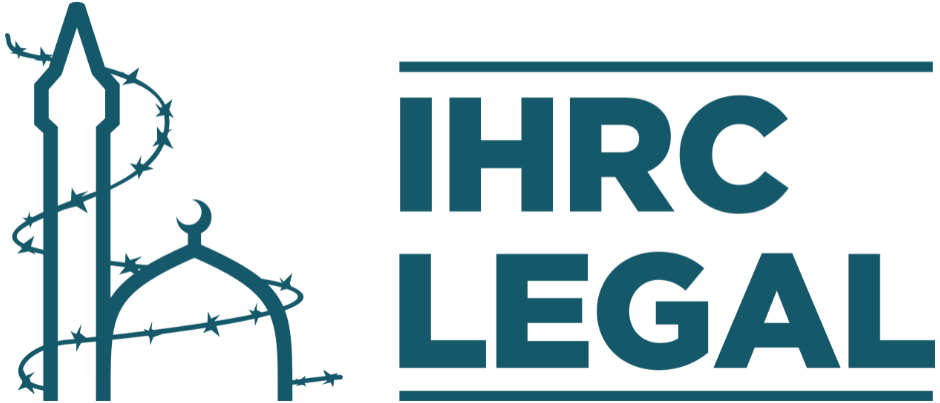Employment Law
Employment law is a complex and fast-changing area of law, with frequent developments in legislation and case law.
IHRC Legal can advise you of your legal rights and what action you may take against your employer if those rights have been infringed, including issuing a claim at the Employment Tribunal. We have a particular interest in challenging all forms of racial and religious discrimination in the workforce.
IHRC Legal also works with small to medium sized businesses and charities seeking to develop their organisation through formalising their contracts of employment and workplace policies, as well as advising on ongoing HR issues including anticipating or defending Employment Tribunal claims.
If you are having problems at work, the first step towards protecting your legal position is often to present your employer with a clear and robust grievance letter.
IHRC Legal can assist you in conveying your complaints effectively and persuasively, to ensure that your grievance has sound legal basis and is taken seriously.
Once the grievance process is underway, we will support and guide you through each stage.
If the grievance does not result in the outcome you hoped for, it nonetheless serves as a firm foundation for any potential litigation in the Employment Tribunal.
If you are the subject of disciplinary action, such as an accusation of misconduct or poor performance, IHRC Legal can assist you to ensure that you are given the opportunity to fully state your case.
IHRC Legal will work to help your employer see that the allegations are either untrue or at the very least do not merit dismissal.
In relation to poor performance, we will try to ensure that you are given a genuine and fair opportunity to improve. If you would rather leave, we can assist with securing a favourable severance payment.
If you’ve worked for an employer for at least two years, you will have the right not to be unfairly dismissed. These mean that you cannot be dismissed unless it is for one of the following reasons:
- Capability: Where your health or abilities are not up to the demands of your role.
- Conduct: When you may have done something that is inappropriate or not acceptable.
- Redundancy: Where your role no longer exists or there is a reduced requirement for your role, and you have been selected for redundancy based on a fair criteria and selection process.
- Breach of statute: Where you cannot do your job legally, for example a lorry driver who is banned from driving.
- Some other substantial reason ‘SOSR’: a term used for a wide variety of other situations such as personality clashes with important clients or colleagues or the reorganisation of a business.
Unfortunately, there are also occasions where an employer has treated you so badly that you have no choice but to resign. This is also known as Constructive dismissal. Examples of such conduct include:
- regularly not being paid the agreed amount without a good reason,
- being bullied or discriminated against,
- raising a grievance that the employer refuses to look into,
- making unreasonable changes to working patterns or place of work without agreement,
- the trust and confidence in the employment relationship has fundamentally broken down.
If you believe you have been unfairly dismissed or are contemplating resigning in order to claim constructive dismissal, please seek legal advice as soon as possible. IHRC Legal is here to assist you.
Discrimination law protects job applicants, workers and those who have left employment from being discriminated against in connection with nine “protected characteristics”, including race and religion or belief.
Protection from discrimination includes:
- discrimination as a result of being associated with someone who has a protected characteristic,
- harassment or unwanted behaviour related to a protected characteristic,
- victimisation of people who have complained about or supported a claim of harassment or discrimination.
If you have suffered discrimination, harassment or victimisation at work, IHRC Legal can support and guide you through the entire process including:
- advising you of your rights and legal claims,
- making the strongest possible grievance with your employer,
- negotiating the best possible settlement,
- representing you in claims before an Employment Tribunal and/or the High Court.
An employer cannot deduct your wages unless you previously agreed in writing, or if they are authorised by law or by the employment contract.
If your employer has failed to pay you, or paid you less than you are entitled to, you may have an Employment Tribunal claim for unlawful deduction from wages.
IHRC Legal can assist you in calculating your entitlement and taking steps to secure the sums owed by your employer.
A settlement agreement is a legally binding contract used to prevent employees from bringing certain legal claims against an employer.
A properly drafted settlement agreement is legally binding, but only if the employee has had an opportunity to receive independent legal advice on the terms and effect of the agreement.
If you’ve been offered a settlement agreement by your employer, contact IHRC Legal to speak to our expert employment lawyers for quick and thorough advice on the term and effects of the agreement to ensure doing so is in your best interests.
In most cases, your employer will pay towards the cost of this independent legal advice, so there will be no cost to you.
